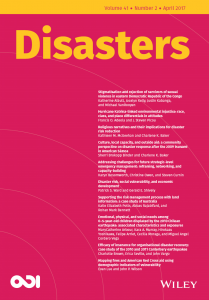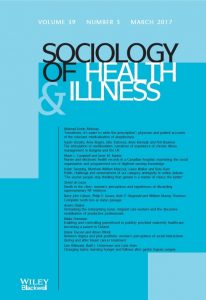Queer Politics as Radical Democratic Citizenship?
nmccoy1
 This week the California Supreme Court upheld the ban on same-sex marriage (see article below). This ruling has reignited political, ideological, and religious disputes over the meaning of marriage. Much less discussed in the media is the tension between movements based on achieving same-sex marriage (typically lesbian and gay politics) and movements of queer politics. While there are certainly overlaps between these identity-driven positions, queer politics tends to emphasize the need to challenge heteronormative norms and institutions as well as to de-essentialize sexuality claims. Within this frame, queer politics would seek to disrupt or (re)define what a committed relationship could look like.
This week the California Supreme Court upheld the ban on same-sex marriage (see article below). This ruling has reignited political, ideological, and religious disputes over the meaning of marriage. Much less discussed in the media is the tension between movements based on achieving same-sex marriage (typically lesbian and gay politics) and movements of queer politics. While there are certainly overlaps between these identity-driven positions, queer politics tends to emphasize the need to challenge heteronormative norms and institutions as well as to de-essentialize sexuality claims. Within this frame, queer politics would seek to disrupt or (re)define what a committed relationship could look like.
In accordance with Chantal Mouffe’s concept of a radical democratic citizenship, the emphasis is not on a particular identity but rather on working against an essentialization of an identity. This combination of the rights of the individual with the pluralistic public asserts that the individual and the collective need not be articulated as dichotomous and that the crucial aspect of political community is the nature of the relationship, the form of the identification between and among individuals. To this end, the primary relations must be centered on the very democratic principles of citizenship upon which the community is built and from which it draws its own legitimacy. There is in some sense a relation or a common purpose among individuals that acknowledges a set of norms or conditions that led to the collective action. Using the notion of a radical democratic citizenship directed towards the California ruling may help to garner support across gay and lesbian and queer movements.

















1468-0491/asset/society_affiliation_image.gif?v=1&s=859caf337f44d9bf73120debe8a7ad67751a0209)

Thanks for this working definition.
I admit that I am wary of discussions which seek to entirely dislocate gender from the body: it seems to me a further development of male paradigms which in the long run harm the female body, and therefore women’s lives.
For example, we know that women at least 5 times (but please don’t quote me on that) than men to die from a heart attack, because for decades medicine has ignored symptomatic differentials between men’s and women’s cardiac arrest.
Moreover, at the risk of inappropriately essentializing, I see much of this radical dislocation between life lived in the body and social discourse (the formation of culture) as being driven by “male” paradigms.
That written, such discussions force us to question and evaluate what is given as “male” and “female,” and in what ways we can incorporate notions of the particular (gender specificity) and the universal (hermanity) in meaningful ways.
Working against something is counterproductive; rather, we should strive to work towards an evolving more inclusive and enlightened society.
Enjoy this blog immensely, and thank you for linking to mine.
The norms of marriage are shifting radically outside of California, as more state within the US allow same-sex marriage. I wonder how this will impact both queer politics and the same-sex marriage movements? When will this be a hurdle and when will it be an advantage?
Keri